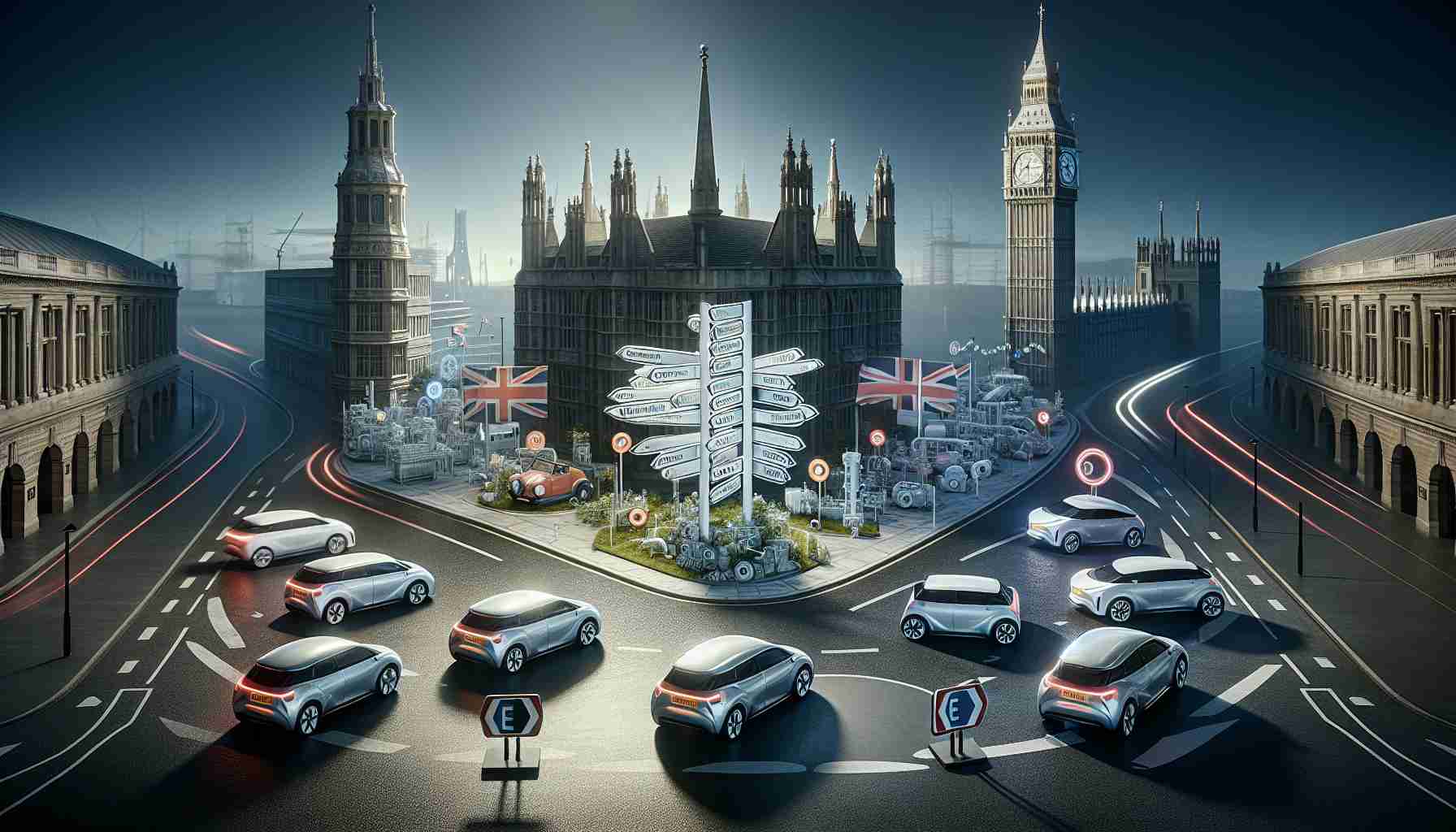As the UK approaches the critical year of 2030, the future of hybrid cars is in the spotlight. Recent government proposals could pave the way for the continuation of Toyota Prius-style hybrids, which combines a traditional petrol engine with electric capabilities, beyond the upcoming sales ban on new petrol and diesel vehicles.
In a comprehensive consultation released just before Christmas, the UK government outlined potential regulations that could impact which vehicles remain on the market post-2030. This move aims to provide clarity to a car industry grappling with the transitions to entirely electric sales. The Society of Motor Manufacturers and Traders emphasized the urgent need for a clearer framework, stating that the current landscape has forced manufacturers into unsustainable practices and hefty discounts to promote electric vehicle ownership.
The current administration is now considering rules that would allow the sale of certain hybrids until 2035 while potentially capping their emissions. Notably, hybrids like the Toyota Prius, which rely on their gasoline engines for battery charging, may be favored over plug-in hybrids that sometimes exceed expected carbon emissions.
Defending these hybrid vehicles, the government pointed out that they could offer lower carbon outputs compared to their plug-in counterparts under specific conditions. The possible inclusion of electric vans under the zero-emission vehicle mandate highlights the government’s commitment to supporting the domestic automotive sector amid global challenges.
The Future of Hybrid Cars in the UK: What You Need to Know
As the automotive landscape rapidly evolves, the future of hybrid vehicles in the UK is becoming increasingly relevant, especially with the government’s recent proposals regarding the regulations for vehicles post-2030.
Current Status of Hybrid Vehicles
With a significant push towards electric vehicles (EVs), the UK government is considering a framework that would allow certain hybrid cars, such as the beloved Toyota Prius, to remain on the market beyond the anticipated sales ban on new petrol and diesel vehicles set for 2030. This decision is crucial as it aims to balance the need for sustainable transportation while accommodating the existing automotive ecosystem.
Proposed Regulations
The government released a consultation paper that outlines potential regulations facilitating the continued sale of hybrids, extending this allowance until 2035. The proposed rules may include strict emission caps, particularly favoring conventional hybrids that utilize petrol engines for battery charging over plug-in hybrids, which have at times produced emissions exceeding expectations.
Benefits of Hybrid Cars
1. Reduced Emissions: Hybrid vehicles often produce lower carbon outputs compared to their plug-in counterparts under certain driving conditions. This makes them a compelling option for consumers who are concerned about environmental impacts but are not yet ready to transition fully to electric models.
2. Transition Technology: Hybrids provide a bridge for drivers transitioning from petrol to electric alternatives, allowing them to navigate the shift in a more gradual manner.
3. Increased Fuel Efficiency: The combination of electric motor and petrol engine typically means hybrids consume less fuel, leading to cost savings for drivers.
Concerns in the Market
The automotive industry is currently facing several challenges, including the pressure to promote EV ownership through significant discounts. Suppliers and manufacturers have pointed out that the lack of a clear regulatory framework has led to unsustainable practices, potentially jeopardizing the future of not just hybrid vehicles but the entire car industry.
Trends and Predictions
As the market shifts, hybrids are likely to play a crucial role in the UK’s quest for greener transportation solutions. Experts anticipate a rise in the market for hybrids, particularly if regulations affirm their place within the automotive viability framework post-2030.
Security and Sustainability Aspects
Vehicle sustainability is becoming a priority, with increased scrutiny on the environmental impact of all types of vehicles. Moreover, manufacturers will need to ensure that safety and security measures keep pace with the advancements in hybrid technology, particularly as vehicles become more connected and reliant on software.
Comparison with Fully Electric Vehicles
While fully electric vehicles are often lauded for having zero emissions, hybrids still provide significant advantages in terms of range and practicality for many consumers. The upcoming regulatory landscape will need to transparently compare and contrast these two technologies.
Conclusion
As the automotive industry braces for transformations ahead of the 2030 deadline, hybrid vehicles like the Toyota Prius could remain a viable option for UK consumers. With a structured regulatory framework, hybrids could not only coexist with electric vehicles but also play an essential role in reducing emissions on the road while consumers adapt to the burgeoning electric vehicle market. For more insights into the latest automotive trends, visit gov.uk.









